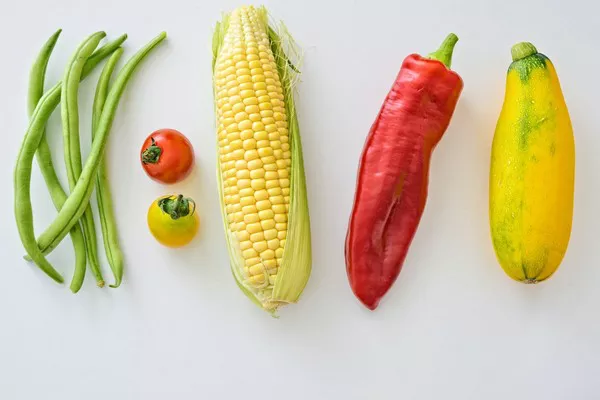Protein is an essential nutrient required for numerous bodily functions, including muscle repair and growth, hormone production, immune system support, and enzyme synthesis. Determining the right amount of protein to consume each day is crucial for maintaining a healthy and balanced diet. This article will provide a comprehensive guide to help you understand how much protein you should eat daily to optimize your overall well-being.
Importance of Protein
Protein is made up of amino acids, which are the building blocks of the body. It plays a vital role in repairing damaged tissues, promoting muscle growth, and supporting a healthy immune system. Additionally, protein has a higher thermic effect compared to fats and carbohydrates, meaning that it requires more energy to digest and absorb, thereby potentially aiding in weight management.
Factors Influencing Protein Needs
The optimal protein intake varies from person to person and depends on various factors, including age, sex, activity level, body composition goals, and overall health. Let’s explore these factors in more detail:
Age
Protein needs tend to differ across different life stages. Infants, children, and adolescents require protein for growth and development, while older adults may have higher protein requirements to mitigate age-related muscle loss.
Sex
Males generally have higher protein requirements than females due to their higher muscle mass and metabolic rate. However, individual variations and specific goals should also be considered.
Activity Level
Physically active individuals, particularly those engaging in regular resistance training or endurance exercises, often require more protein to support muscle repair and adaptation. Athletes, in particular, may need higher protein intake to enhance performance and recovery.
Body Composition Goals
If you’re aiming to gain muscle mass or lose weight, your protein needs may differ. When trying to build muscle, a higher protein intake is often recommended to support muscle protein synthesis. Conversely, when aiming for weight loss, a slightly higher protein intake can help preserve lean muscle mass while reducing body fat.
Overall Health
Certain health conditions, such as kidney disease or specific metabolic disorders, may require adjustments in protein intake. It’s essential to consult with a healthcare professional or registered dietitian if you have any pre-existing medical conditions.
Recommended Daily Protein Intake
Based on the factors mentioned above, various organizations have established general guidelines for protein intake. The following recommendations are generally considered appropriate for healthy adults:
Recommended Dietary Allowance (RDA)
The RDA for protein is set at 0.8 grams per kilogram of body weight per day (g/kg/day) for sedentary adults. This means that a sedentary adult weighing 68 kilograms (150 pounds) would need approximately 55 grams of protein daily. However, this guideline is primarily intended to prevent deficiencies and may not be optimal for active individuals or those with specific goals.
Active Individuals
For physically active individuals, protein needs may range from 1.2 to 2.2 g/kg/day. This range is recommended to support muscle repair, growth, and overall performance. Endurance athletes may lean toward the lower end, while strength and power athletes may require higher protein intakes.
Muscle Building
When the goal is to maximize muscle protein synthesis and promote muscle growth, protein intake of around 1.6 to 2.2 g/kg/day is commonly recommended. Consuming protein evenly throughout the day, including both meals and snacks, can optimize muscle protein synthesis rates.
Weight Loss
During calorie-restricted diets, a slightly higher protein intake can help preserve lean muscle mass. Consuming 1.2 to 1.6 g/kg/day of protein is often recommended for individuals aiming for weight loss. High-protein diets can also promote satiety, helping to curb hunger and improve adherence to the diet.
Older Adults
As individuals age, their protein requirements may increase due to a higher risk of muscle loss. Protein intakes of 1.2 to 2.0 g/kg/day are often suggested for older adults to support muscle maintenance and function.
Protein Sources for Meeting Protein Needs
To meet your daily protein requirements, it’s crucial to incorporate a variety of protein-rich foods into your diet. Here are some excellent sources of protein along with tips to help you reach your protein intake goals:
Lean Meats and Poultry
Include lean cuts of beef, chicken, turkey, and pork in your meals. These options are not only high in protein but also provide essential nutrients like iron and zinc. Remove visible fat and choose cooking methods like grilling, baking, or broiling to keep the dish healthy.
Fish and Seafood
Fish and seafood are excellent sources of high-quality protein and heart-healthy omega-3 fatty acids. Aim to include fatty fish like salmon, trout, and sardines, as they are particularly rich in omega-3s. Canned tuna or salmon can be convenient options for quick meals.
Dairy Products
Milk, yogurt, and cheese are not only rich in protein but also provide calcium and other essential nutrients. Opt for low-fat or Greek yogurt, as they contain higher protein content compared to regular yogurt. Choose low-fat or skim milk and include cottage cheese or ricotta cheese in salads or as a snack.
Eggs
Eggs are a versatile and affordable source of protein. They contain all essential amino acids and are a great option for breakfast or as a protein boost in salads or sandwiches. Include whole eggs in moderation, as the yolks also provide important vitamins and minerals.
Legumes and Pulses
Beans, lentils, chickpeas, and other legumes are not only rich in protein but also high in fiber and other beneficial nutrients. They are an excellent choice for vegetarian or vegan diets. Incorporate legumes into soups, stews, salads, or make plant-based burgers or spreads like hummus.
Nuts and Seeds
Almonds, walnuts, peanuts, chia seeds, and flaxseeds are examples of protein-rich nuts and seeds. They can be enjoyed as snacks or added to cereals, yogurt, or smoothies to increase your protein intake. However, be mindful of portion sizes due to their higher calorie content.
Plant-Based Protein Sources
For those following a vegetarian or vegan diet, plant-based protein sources such as tofu, tempeh, seitan, and edamame are excellent options. Soy products like tofu and tempeh are complete protein sources, meaning they provide all essential amino acids.
Protein Supplements
In some cases, meeting protein needs through whole foods alone can be challenging. Protein supplements, such as whey protein, casein protein, or plant-based protein powders, can be convenient options. However, it’s important to prioritize whole foods whenever possible and use supplements as a supplement, not a replacement for a balanced diet.
Tips for Meeting Protein Goals
Spread protein intake throughout the day: Aim to include protein-rich foods in each meal and snack. This approach optimizes muscle protein synthesis rates and promotes satiety throughout the day.
Plan meals in advance: Planning meals and snacks ahead of time can help ensure that you include adequate protein sources. Meal prepping and having protein-rich snacks readily available can prevent relying on less nutritious options when hunger strikes.
Monitor portion sizes: While protein is important, it’s essential to maintain a balanced diet. Be mindful of portion sizes to avoid excessive calorie intake. Use measuring tools or refer to portion guidelines to help you manage your protein intake.
Consult a registered dietitian: If you have specific dietary needs, health conditions, or find it challenging to meet your protein goals, seek guidance from a registered dietitian. They can provide personalized recommendations and help you create a meal plan that aligns with your goals and preferences.
Conclusion
Protein is a vital nutrient that supports numerous aspects of health and well-being. Determining your optimal daily protein intake depends on several factors, including age, sex, activity level, body composition goals, and overall health. While the general recommendation is 0.8 grams of protein per kilogram of body weight for sedentary individuals, active individuals, athletes, and those with specific goals may require higher protein intakes. Incorporating a variety of protein sources, such as lean meats, fish, dairy products, legumes, nuts, and seeds, is key to meeting your protein needs while enjoying a balanced and nutritious diet. Remember to prioritize whole foods and consult with a healthcare professional or registered dietitian to ensure you are meeting your specific protein requirements.
[inline_related_posts title=”Related Topics” title_align=”left” style=”list” number=”3″ align=”none” ids=”691,688,671″ by=”categories” orderby=”rand” order=”DESC” hide_thumb=”no” thumb_right=”no” views=”no” date=”yes” grid_columns=”1″ post_type=”” tax=””]



































